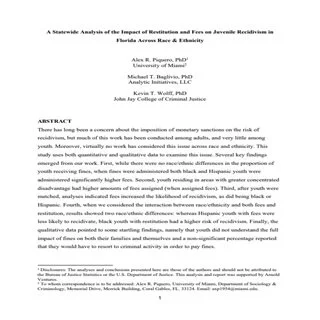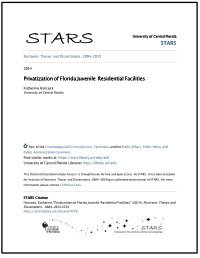By Alex R. Piquero, Michael T. Baglivio, Kevin T. Wolff
There has long been a concern about the imposition of monetary sanctions on the risk of recidivism, but much of this work has been conducted among adults, and very little among youth. Moreover, virtually no work has considered this issue across race and ethnicity. This study uses both quantitative and qualitative data to examine this issue. Several key findings emerged from our work. First, while there were no race/ethnic differences in the proportion of youth receiving fines, when fines were administered both black and Hispanic youth were administered significantly higher fees. Second, youth residing in areas with greater concentrated disadvantage had higher amounts of fees assigned (when assigned fees). Third, after youth were matched, analyses indicated fees increased the likelihood of recidivism, as did being black or Hispanic. Fourth, when we considered the interaction between race/ethnicity and both fees and restitution, results showed two race/ethnic differences: whereas Hispanic youth with fees were less likely to recidivate, black youth with restitution had a higher risk of recidivism. Finally, the qualitative data pointed to some startling findings, namely that youth did not understand the full impact of fines on both their families and themselves and a non-significant percentage reported that they would have to resort to criminal activity in order to pay fines.
Philadelphia: Juvenile Law Center, 2023. 50p.






